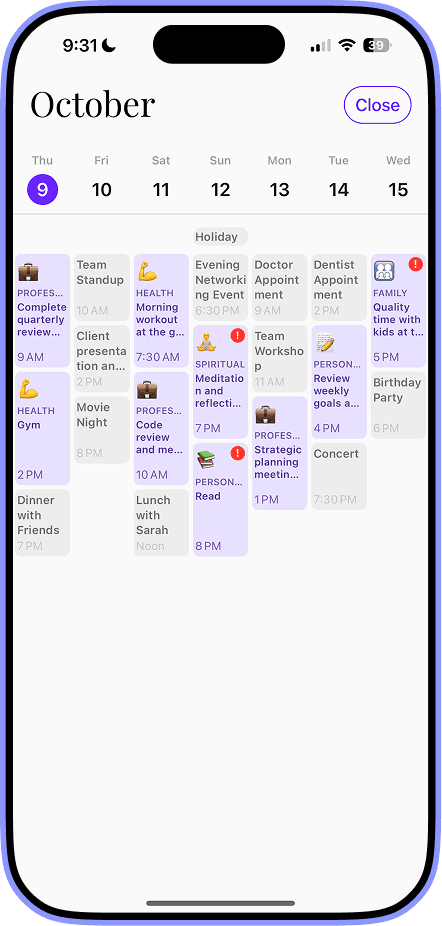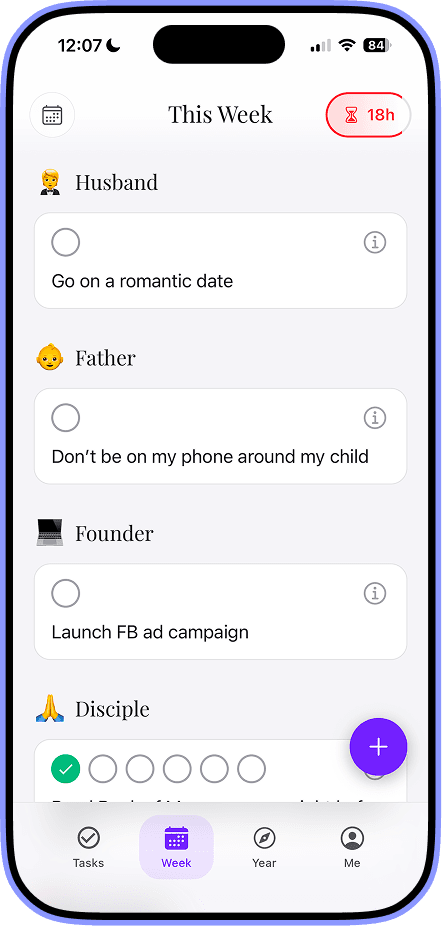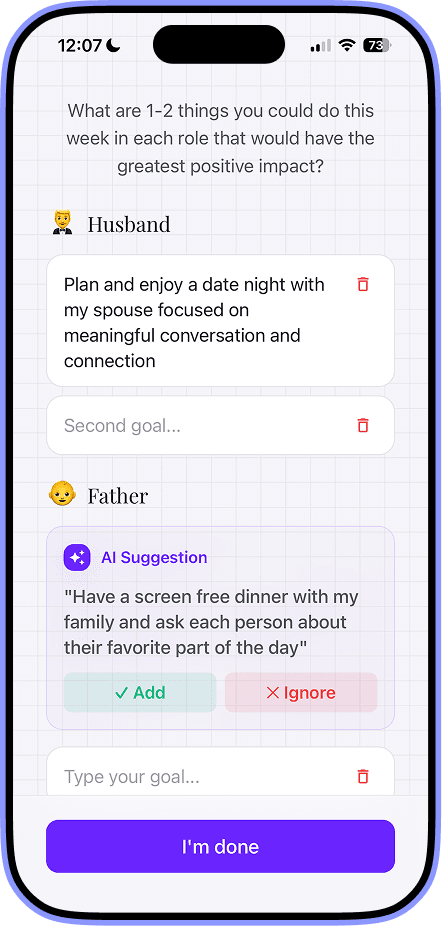Executive Assistant vs Personal Assistant A Complete Guide
Discover the key differences in the executive assistant vs personal assistant debate. This guide covers roles, skills, and career paths for each profession.

At its core, the difference between an executive assistant and a personal assistant comes down to one word: scope.
An Executive Assistant (EA) is a strategic business partner, a force multiplier focused entirely on an executive's professional world. A Personal Assistant (PA), on the other hand, is a lifestyle manager, dedicated to making an individual's private life run without a hitch. The right choice for you hinges on a simple question: do you need help in the office or out of it?
EA vs PA: Understanding the Core Differences
While the titles might sound similar, executive assistants and personal assistants operate in completely different worlds. They each have unique responsibilities, skill sets, and career trajectories. Both provide critical support, but their functions are designed for separate spheres of a person's life.
Think of an EA as a strategic partner to a top-level leader like a CEO, operating right at the heart of the business. A PA is more focused on managing the personal and lifestyle needs of their employer, which could mean anything from coordinating household staff to managing personal travel plans. You can get even more insights on these distinct roles from the experts at Boldly.com.
Core Function and Environment
An EA’s work is tied directly to business outcomes. They're in the trenches preparing board meeting materials, untangling complex professional calendars, and often acting as a crucial gatekeeper for the executive. Their world is corporate, and their success is measured by how much more productive and effective they make their executive at work.
A PA, in contrast, operates within their employer’s personal life. Their responsibilities might look like planning a family vacation, managing household staff, running personal errands, or organizing a private party. The environment is intensely personal, and success is defined by how seamlessly they can make their employer's private life flow.
The chart below lays out some key data points, showing the clear differences in average salary and the time commitment for each role.
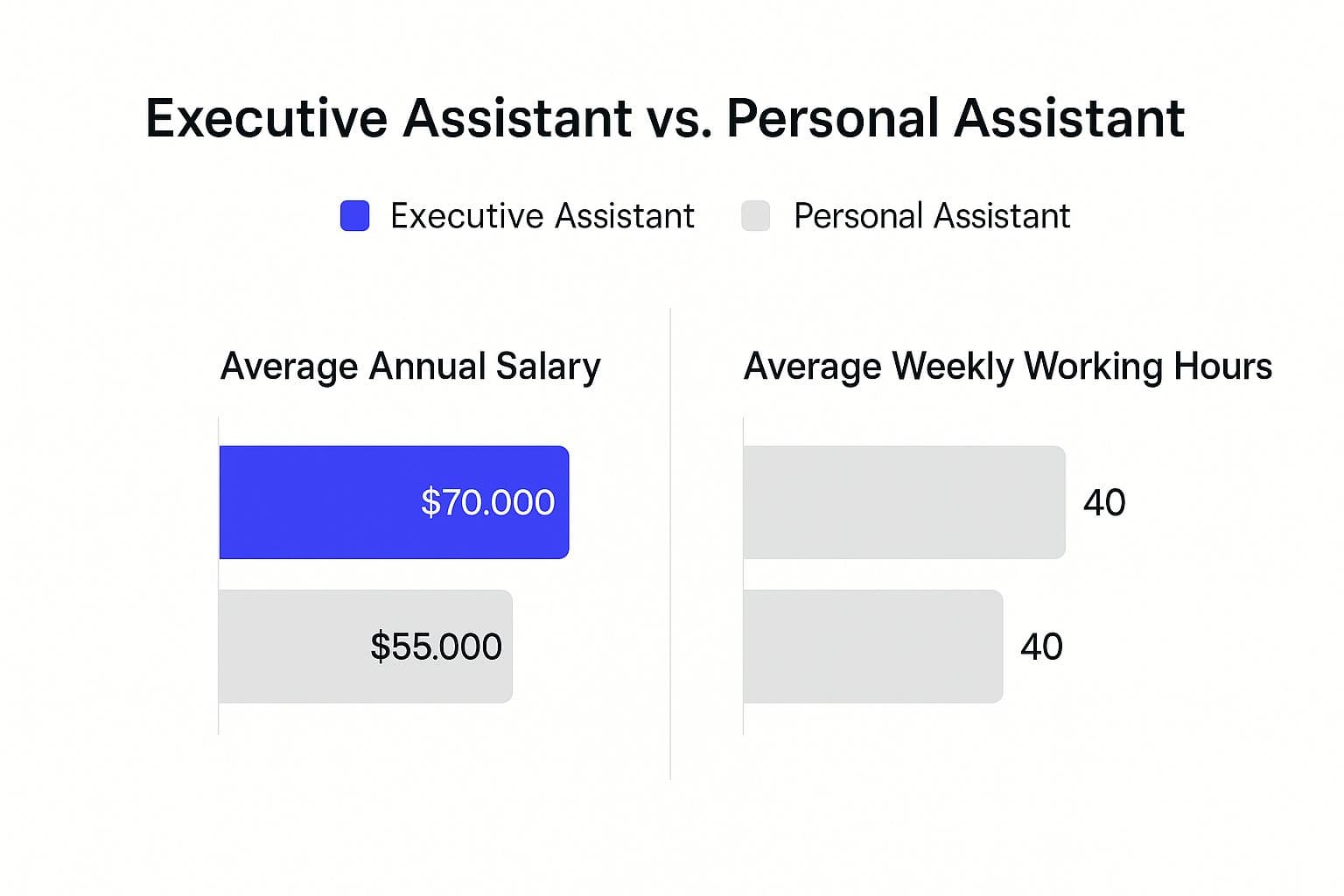
The data makes it pretty clear: while both roles are demanding, the executive assistant position typically comes with a higher salary, which reflects its direct impact on a company's bottom line.
EA vs PA At a Glance
To make the comparison even clearer, here’s a quick breakdown of the core differences between an Executive Assistant and a Personal Assistant.
| Aspect | Executive Assistant (EA) | Personal Assistant (PA) |
| Primary Focus | Professional & Business Life | Personal & Private Life |
| Key Responsibilities | Calendar management, project coordination, meeting prep, corporate travel | Household management, personal errands, family scheduling, personal travel |
| Work Environment | Corporate Office / Remote Business Setting | Private Residence / On-the-Go |
| Stakeholders | C-suite, board members, clients, internal teams | Family members, household staff, personal vendors, social contacts |
| Core Skills | Business acumen, project management, tech proficiency | Discretion, adaptability, resourcefulness, event planning |
This table really highlights the fundamental divide. An EA is all about business strategy and operational efficiency, while a PA is the master of personal logistics and lifestyle management.
The Strategic Role of an Executive Assistant
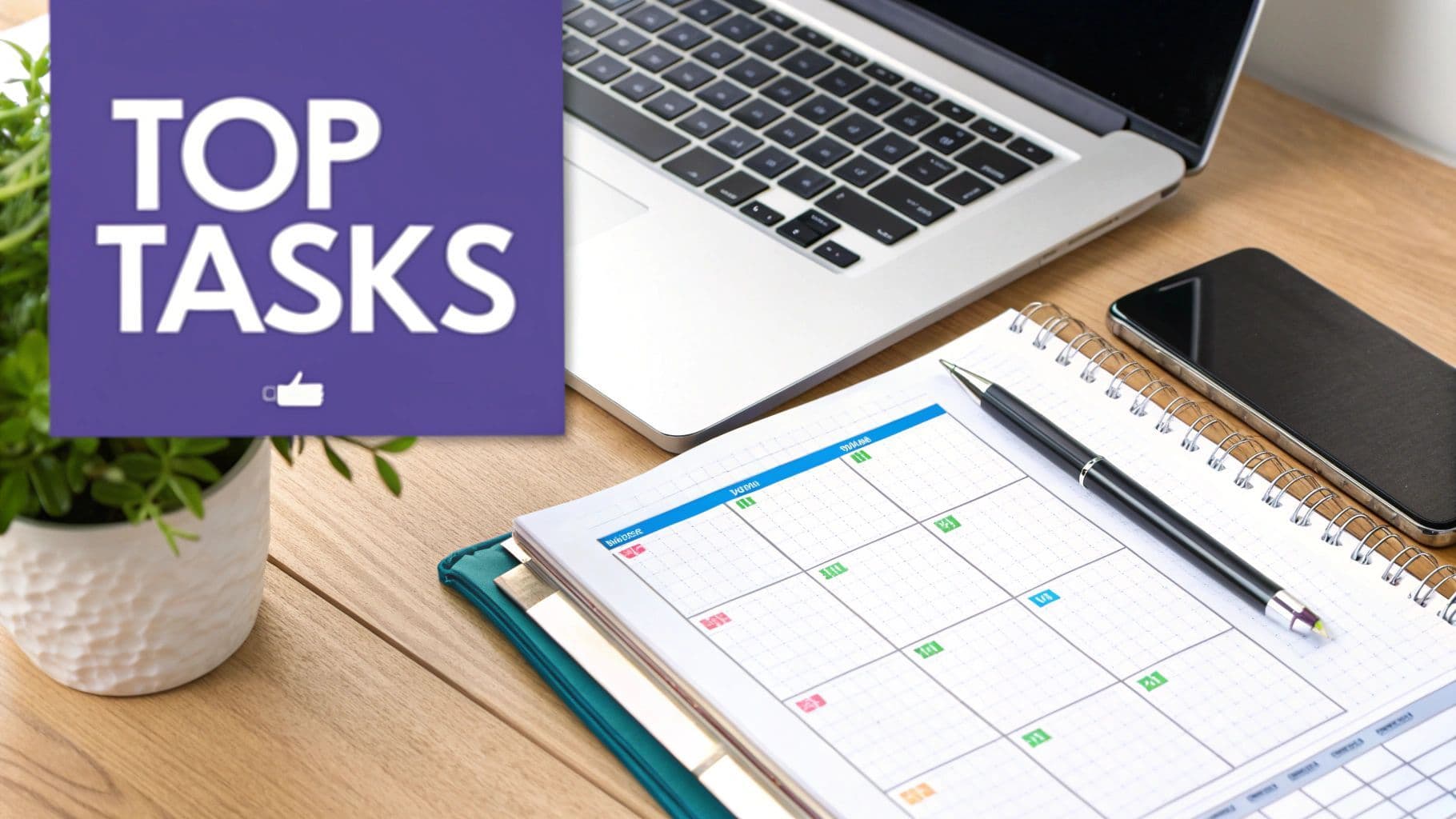
The Executive Assistant of today has moved far beyond the old-school administrative tasks. A modern EA is a strategic partner—a direct extension of the executive they support. Think of them as a critical force multiplier, someone whose entire focus is on driving business objectives forward by maximizing their executive's impact.
Their role is deeply woven into the fabric of the company. It’s not about just scheduling meetings; it’s about strategically orchestrating the executive’s time to align perfectly with top-tier corporate priorities. They serve as a sophisticated gatekeeper, shielding the executive from the daily noise so they can focus on what truly matters: strategy, innovation, and leadership.
Driving Business Operations
An EA operates right at the nerve center of the organization. They're not just managing an inbox; they're managing the flow of critical information and coordinating complex, high-stakes projects. This requires a profound understanding of the business's goals, its culture, and all the key players involved.
Here’s what that looks like in the real world:
- International Negotiations: Before the CEO boards a flight to Tokyo for a pivotal deal, the EA has already compiled a complete briefing document. It includes detailed bios of everyone in the room, a history of past communications, notes on cultural etiquette, and the key talking points that align with the company's entire negotiation strategy.
- Departmental Projects: A new marketing initiative is kicking off. The EA might be the one managing the project budget, tracking timelines, and acting as the central point of contact between departments to make sure nothing falls through the cracks.
- Board Meeting Preparation: They’re the ones pulling together sensitive financial reports, drafting the agenda alongside the executive, and ensuring every board member has what they need well in advance. They set the stage for a productive, seamless meeting.
An Executive Assistant’s true value lies in their ability to anticipate needs and operate proactively. They don't just manage tasks; they manage outcomes, often handling confidential corporate data and participating in strategic planning sessions.
This proactive mindset is what separates a good EA from a great one. They aren't just waiting for instructions—they're already thinking three steps ahead. In today's business environment, that kind of foresight isn't a bonus; it's essential.
Enhancing Executive Productivity with AI
In a role this demanding, every minute counts. This is where tools like Harmony AI become a game-changer. An EA can use simple voice commands to draft and send emails to key stakeholders while commuting home, or instantly find an open slot in their executive's jam-packed calendar for an urgent call.
This isn't just about saving a few minutes here and there. It's about reclaiming significant chunks of time that can be reinvested into higher-level strategic support. By automating the essential but time-consuming tasks, Harmony AI empowers the Executive Assistant to be an even more effective strategic partner.
A Day in the Life of a Personal Assistant

While an executive assistant’s day orbits around corporate calendars and business goals, a personal assistant’s (PA) world is far more fluid. They operate within their employer’s private ecosystem, where their schedule is a dynamic blend of personal logistics and lifestyle management. Here, the most valuable currencies aren't quarterly reports, but trust, discretion, and an almost supernatural level of resourcefulness.
A PA’s morning rarely starts with reviewing business reports. Instead, they might be coordinating with household staff to prep for evening guests, while simultaneously on a call with a real estate agent about a leaky faucet at a vacation property halfway across the world. No two days are ever remotely the same.
Managing the Personal Ecosystem
The core mission of a PA is to make their employer’s personal life run so smoothly that they are free to focus on their own priorities, whether professional or personal. This demands an incredible talent for juggling a diverse, and often overlapping, set of tasks.
A typical afternoon could easily involve:
- Complex Family Travel: Finalizing a multi-stop international family vacation. This isn't just booking flights—it’s arranging private transport, sourcing unique excursions for different age groups, and triple-checking that every visa requirement is handled.
- Event Planning: Acting as the discreet go-between for caterers, florists, and entertainers for a high-profile charity dinner hosted at the employer's home, ensuring total privacy from start to finish.
- Financial Oversight: Taking care of personal bills, tracking household spending against a set budget, and drafting a concise summary for the family's financial advisor.
The real magic of a top-tier Personal Assistant is their ability to see around corners—to anticipate personal needs and solve problems before they even surface. They become the single, reliable point of contact for every facet of life outside the office.
This role demands exceptional adaptability. One moment, a PA is researching the best private tutors for the children; the next, they're arranging the secure transport of a valuable piece of art. It’s a career built on navigating the fine-grained nuances of personal preferences and complex family dynamics.
Modern Tools for a Dynamic Role
In a job where you’re always short on time, the right tools are a game-changer. A PA might use Harmony AI to manage their employer's packed personal calendar with simple voice commands while running errands across town. They can dictate reminders for upcoming appointments or draft quick emails to vendors without ever having to stop and type.
By offloading these communication and scheduling tasks, Harmony AI helps a PA stay organized and incredibly responsive—two absolute must-haves for success. Juggling so many remote and personal responsibilities also requires sharp efficiency. Exploring strategies for time management for remote workers can offer great frameworks for staying in control. It's this blend of high-touch personal service and modern efficiency that really defines the modern PA.
Comparing Essential Skills and Career Paths
The lines between an executive assistant (EA) and a personal assistant (PA) get even clearer when you look at the skills they need and where their careers are headed. While both have to be masters of organization, their core talents are built for entirely different worlds, sending them down very different professional paths.
An EA is, first and foremost, a business professional. Their entire skill set is geared toward corporate efficiency and strategic backup. This means having sharp business acumen—they need to know the company’s goals, who the key players are, and what’s happening in the industry. They also have to be wizards with business tech, from project management software to complex communication platforms.
A PA, on the other hand, lives and breathes adaptability and resourcefulness in a personal setting. Their world revolves around things like high-end event management, pulling off everything from a small family gathering to a major charity gala. Their people skills have to be top-notch, as they’re often navigating sensitive family dynamics where absolute trust is non-negotiable.
Skill Set and Career Path Comparison EA vs PA
To really see the difference, it helps to break down the specific skills and career tracks that define each role. This isn't just about day-to-day tasks; it’s about the long-term professional journey each assistant is on.
| Area | Executive Assistant | Personal Assistant |
| Core Competencies | Project management, financial literacy, corporate communication, tech proficiency. | Adaptability, resourcefulness, high-level discretion, interpersonal skills. |
| Primary Focus | Driving business objectives and maximizing executive productivity. | Managing personal logistics and ensuring a seamless private life. |
| Typical Career Path | Chief of Staff, Operations Manager, Project Manager, Senior Executive leadership. | Family Office Manager, Estate Manager, High-End Lifestyle Consultant. |
| Key Metric of Success | Measurable impact on business efficiency and executive performance. | Flawless execution of personal tasks and complete employer satisfaction. |
As you can see, one path leads deeper into the corporate world, while the other leads to managing increasingly complex personal empires.
Long-Term Growth and Evolution
An EA’s career usually moves straight up the corporate ladder. With deep experience in operations, strategy, and management, a star EA is perfectly positioned to become a Chief of Staff. This isn’t just an assistant role anymore; it’s a senior strategic advisor and the CEO's right hand—a natural next step.
A PA’s career, by contrast, expands outward to manage more intricate personal ecosystems. An experienced PA could become a Family Office Manager, overseeing not just a household but an entire family's financial, legal, and personal affairs. This requires an incredible amount of trust and a skillset that goes way beyond just managing a calendar.
A huge trend changing the EA game is the rise of remote assistants. It's not just about saving money; remote EAs give companies more flexibility and access to talent all over the world. Repstack.co has some great insights on this shift. For any EA working remotely, mastering a few solid priority management systems is key to proving your value from afar.
Both roles need powerful tools to keep everything straight. With Harmony AI, an EA can draft a follow-up email to the board with a simple voice command during their commute. At the same time, a PA can add a last-minute appointment to their employer’s calendar while out running errands. This AI co-pilot gives both professionals their time back, letting them focus on the bigger-picture tasks that truly define their careers.
Analyzing Salary Expectations and Compensation
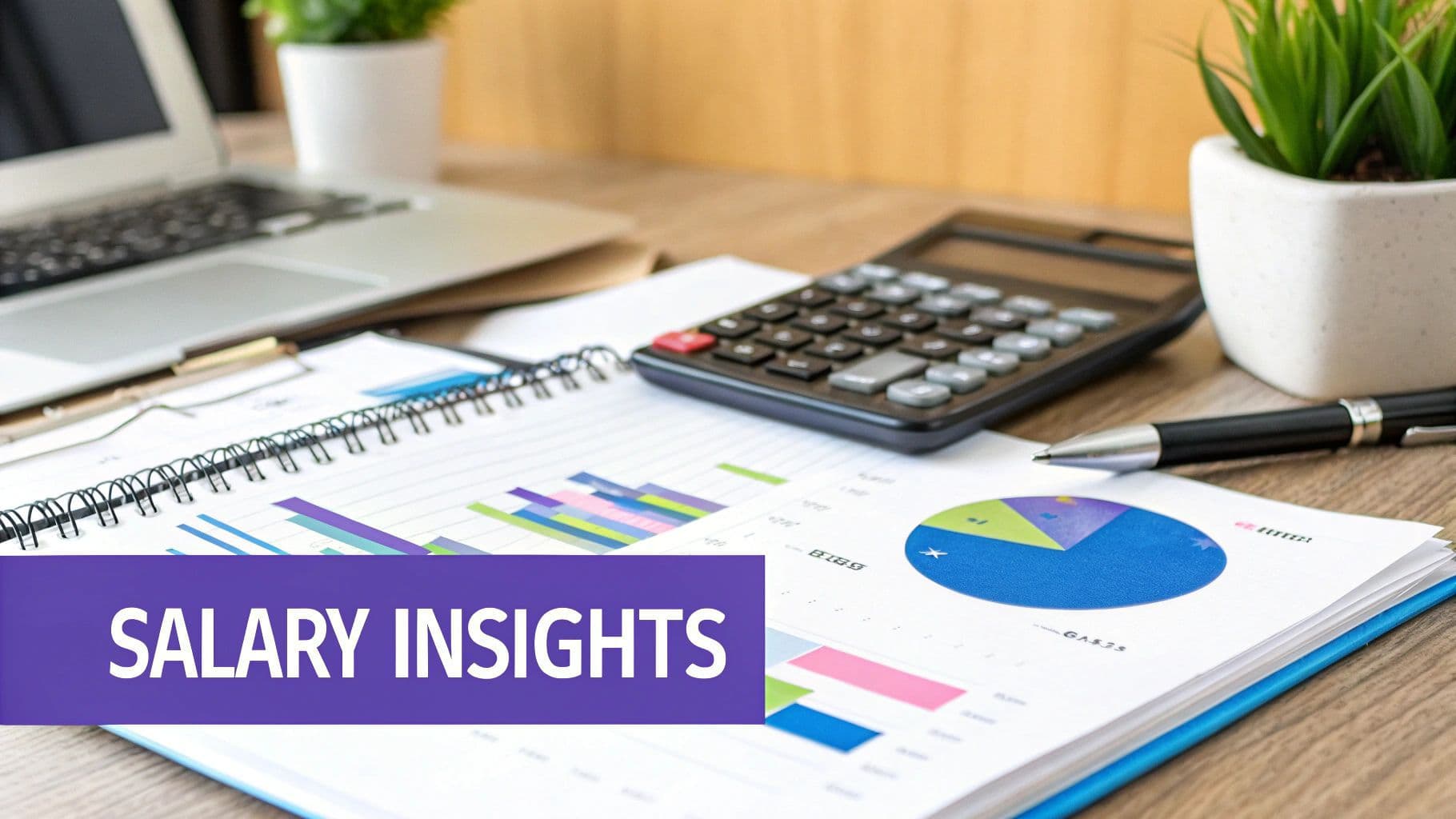
When you get down to it, compensation is one of the clearest lines separating an executive assistant from a personal assistant. The pay reflects the distinct value and environment of each role, and it’s always shaped by the usual suspects: location, years of experience, and who you’re working for.
Think about it: an EA supporting a Fortune 500 CEO in New York City is playing in a completely different league financially than one helping a small business owner in a lower-cost state. The same goes for PAs. An assistant managing the life of a high-net-worth individual with multiple homes will naturally have higher earning potential than one helping a local entrepreneur get their startup off the ground.
Compensation Structures and Benefits
For an executive assistant, the compensation package is usually pretty standard corporate stuff. You’ll see a solid base salary, performance bonuses that are often tied to company-wide goals, and the typical benefits package with health insurance, a retirement plan, and paid time off. It’s structured and predictable.
A personal assistant’s compensation, on the other hand, can be far more creative and varied. While a base salary is still the foundation, their packages often include unique perks that are custom-fit to their employer’s lifestyle.
The most significant financial differences appear at the highest levels. Top-tier PAs for ultra-wealthy individuals often see compensation packages rivaling those of senior corporate executives, complete with substantial bonuses and unique lifestyle perks.
This really drives home the different worlds these two roles operate in. To get a real pulse on what the market looks like for either role, using modern Salary Benchmarking Tools is a must for staying competitive.
At the absolute top tier—we're talking about executive personal assistants supporting principals at family offices that manage over $2.5 billion in assets—total compensation can soar past $240,000. And it doesn't stop at the base salary. These roles often come with incredible benefits like housing stipends, travel allowances, and tech allowances.
No matter which path you're on, justifying that top-tier pay comes down to efficiency. This is where a tool like Harmony AI becomes a game-changer. Both EAs and PAs can use it to automate all the routine scheduling and back-and-forth communication with simple voice commands. This frees them up to focus on the high-impact work that truly matters, giving them a rock-solid case for better pay and bigger opportunities.
How AI Is Transforming Assistant Roles
Let's be clear: artificial intelligence isn't coming to replace assistants. It's here to supercharge them. For both executive and personal assistants, AI tools are becoming a powerful partner, taking over the routine, repetitive tasks and freeing them up for the high-value work that truly matters. This shift is turning what was once a support function into a genuine strategic partnership.
For an Executive Assistant, AI is a game-changer for tackling the administrative grind that used to eat up most of the day. It can instantly draft professional emails, summarize long-winded reports, and handle ridiculously complex scheduling requests in seconds. We're even seeing advanced tools like AI in contract management elevate the strategic input EAs can provide.
Once you automate the tedious stuff, an EA can pivot from just reacting to tasks to proactively driving strategy. Suddenly, there’s more time to manage key projects, prep for board meetings, and operate as a true second-in-command.
AI as a Personal Lifestyle Manager
Personal Assistants are seeing huge benefits, too. An AI tool can juggle personal appointments, track household spending down to the penny, and research detailed travel plans in the time it takes to make a cup of coffee. It completely smooths out the logistics of managing a lifestyle, giving the PA more bandwidth to focus on delivering that high-touch, personalized service.
Think about a PA using an AI to find the best local caterer for a party or book a last-minute flight—all while they’re on the phone coordinating with the household staff. AI crushes the data-heavy work, leaving the PA to manage the human side and make sure everything runs perfectly.
AI doesn’t diminish the value of an assistant; it amplifies it. By handling the mundane, AI enables assistants to double down on the skills that matter most: strategic thinking for EAs and personalized, discreet service for PAs.
Harmony AI: The Ultimate Assistant Co-Pilot
This is exactly where Harmony AI fits in. As an AI-powered voice assistant, Harmony slots right into the daily chaos of both EAs and PAs, acting as the ultimate efficiency booster.
- For the Executive Assistant: An EA commuting to the office can use a simple voice command to schedule a meeting with five different stakeholders or dictate a follow-up email. That dead time in the car just became productive. For anyone looking to get a serious edge, mastering tools like AI for Google Calendar is a great place to start.
- For the Personal Assistant: A PA who's out running errands can verbally add a last-minute doctor's appointment to their employer's calendar or set a quick reminder to pick up the dry cleaning. Harmony makes sure nothing falls through the cracks, even when the PA is miles away from their desk.
Check out the video below to see just how seamlessly Harmony AI can integrate into your workflow, turning simple voice commands into powerful actions.
Harmony AI gives both professionals the agility to be more responsive and effective. It’s not just another app; it’s a partner that enhances their ability to deliver incredible support, whether that’s in a corporate boardroom or a private home. By handling the repetitive communication and scheduling tasks, it frees up assistants to focus on what they do best: providing invaluable, high-level support.
Got questions about the whole executive vs. personal assistant debate? You're not alone. Let's clear up a few of the most common ones that pop up when people are trying to decide which path to take or who to hire.
Can One Person Really Be Both an Executive and Personal Assistant?
Absolutely. This hybrid role is often called an Executive Personal Assistant (EPA), and you see it a lot with entrepreneurs or top-tier execs whose lives are deeply intertwined with their work. One minute they're prepping slides for a board meeting, the next they're booking a family vacation.
It's a demanding gig, though. Juggling both professional and private worlds requires an incredibly versatile skill set and almost superhuman organizational skills to keep everything from colliding.
Which Role is Better for My Career in the Long Run?
It’s less about which is "better" and more about where you want to go. The career paths are excellent, but they head in totally different directions.
An Executive Assistant is on a corporate trajectory. They're in the trenches of business operations and strategy, which often leads to senior roles like Chief of Staff, Operations Manager, or even a director-level position. They're climbing the corporate ladder.
A Personal Assistant, on the other hand, grows their career within the private service world. A top-notch PA might become an Estate Manager, overseeing multiple properties and a large household staff. Or they could move into a Family Office Manager role, directing the complex financial and personal affairs of a high-net-worth family.
Are These Jobs Usually Remote?
Remote work is way more common for Executive Assistants. So much of their job—managing digital calendars, coordinating Zoom calls, handling emails—happens online anyway, so they can do it effectively from just about anywhere.
While some PA tasks like booking travel or managing online orders can be done remotely, the role is fundamentally hands-on. Things like managing a household, running errands, and coordinating in-person events mean a PA usually needs to be physically present.
No matter which hat you wear, keeping track of a million moving pieces is part of the job. Harmony AI is the ultimate co-pilot for busy EAs and PAs. It gives you the power to manage schedules, draft communications, and stay organized using simple voice commands, freeing you up to focus on the strategic, high-impact work that truly matters.
Ready to get some time back? Try Harmony for free and see how it works.
Harmony - AI Planner
Plan your weeks, plan your life. Define your mission, plan weeks around your roles, and stay on track every day with AI guidance.
Download FreePersonal Mission
Define your deeper why
Weekly Planning
Role-based goal setting
AI Guidance
Smart suggestions & nudges
Celebrations
Stay motivated daily
